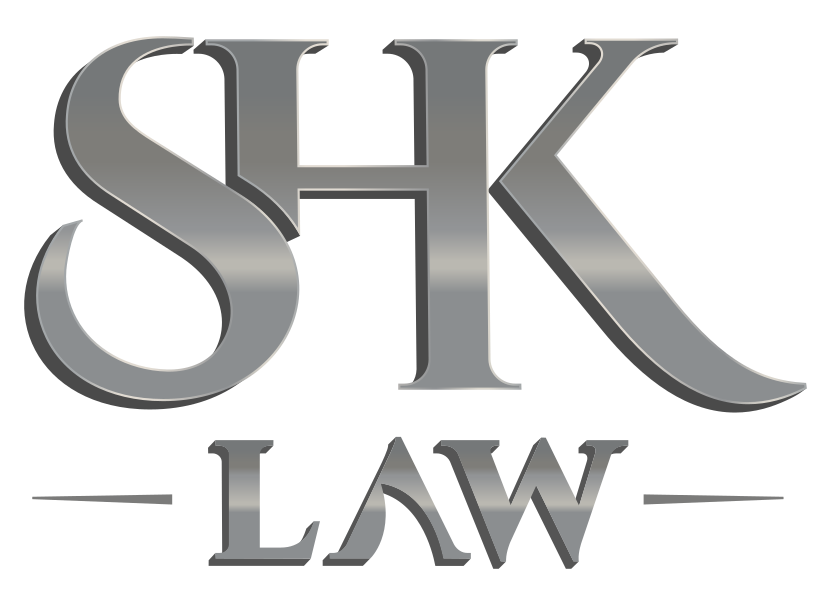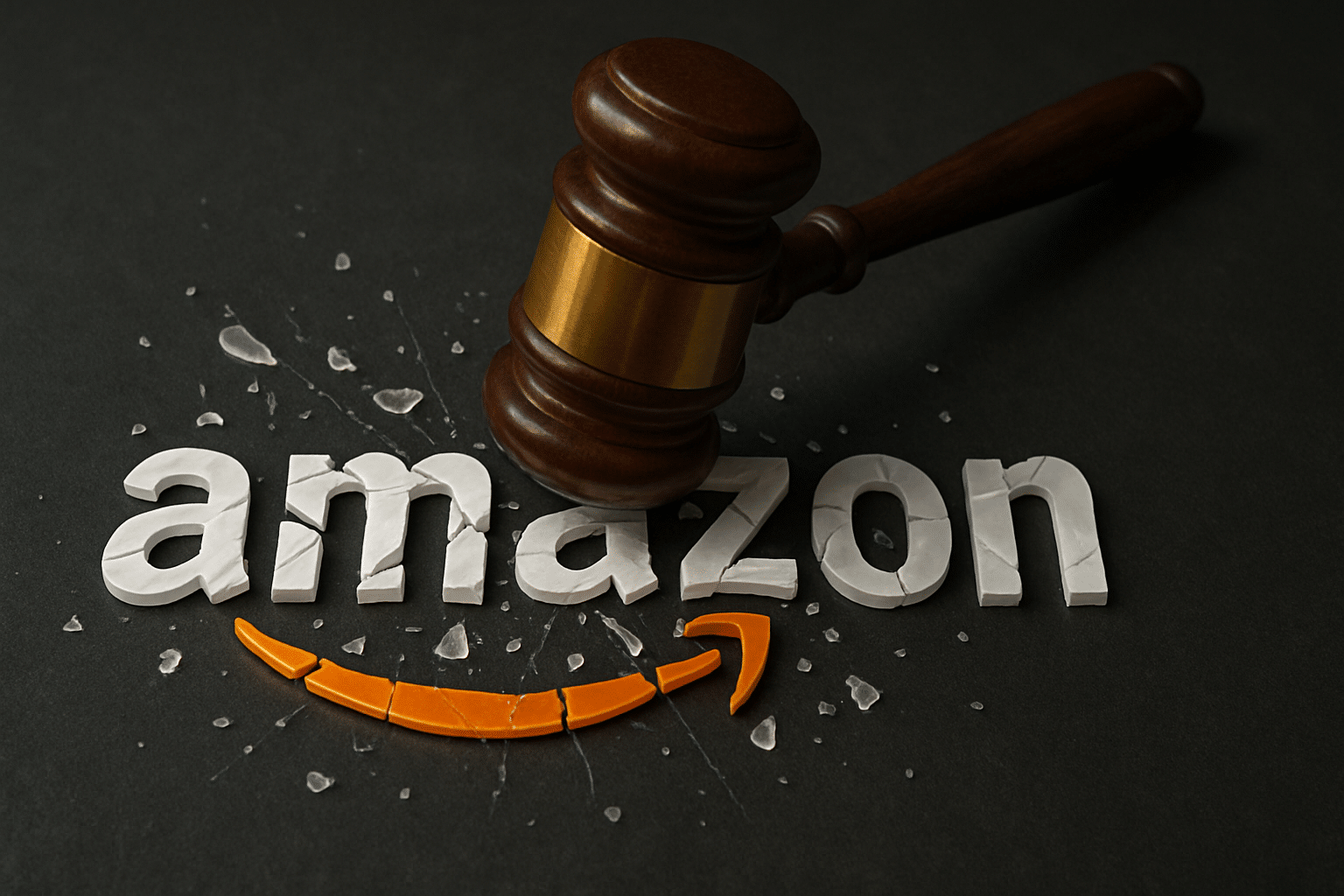We are proud to announce that SHK Law partner Brian J. Kim has contributed his expertise to the transformative new book, “Witness Preparation: How to Tell the Winning Story” by Jesse Wilson, now available for purchase from Trial Guides.
Colsen Fire Pit Recall: Serious Burn Injuries Require More Than Refunds
We are proud to announce that SHK Law partner Brian J. Kim has contributed his expertise to the transformative new book, “Witness Preparation: How to Tell the Winning Story” by Jesse Wilson, now available for purchase from Trial Guides.
Common Mechanical Failures That Lead to Car Accidents & Legal Recourse
We are proud to announce that SHK Law partner Brian J. Kim has contributed his expertise to the transformative new book, “Witness Preparation: How to Tell the Winning Story” by Jesse Wilson, now available for purchase from Trial Guides.
When Convenience Turns Catastrophic: The Hidden Dangers of Amazon’s E-Bike Marketplace
We are proud to announce that SHK Law partner Brian J. Kim has contributed his expertise to the transformative new book, “Witness Preparation: How to Tell the Winning Story” by Jesse Wilson, now available for purchase from Trial Guides.
Brian J. Kim on Transforming Jurors’ Values into Powerful Verdicts
We are proud to announce that SHK Law partner Brian J. Kim has contributed his expertise to the transformative new book, “Witness Preparation: How to Tell the Winning Story” by Jesse Wilson, now available for purchase from Trial Guides.
SHK Law Partners Brian J. Kim and Maureen Hennessey Featured in Groundbreaking Trial Guides Book
We are proud to announce that SHK Law partner Brian J. Kim has contributed his expertise to the transformative new book, “Witness Preparation: How to Tell the Winning Story” by Jesse Wilson, now available for purchase from Trial Guides.
LA Tour Bus Crash: Support and Legal Help for Victims
LA Tour Bus Crash: Support and Legal Help for Victims
The recent tour bus crash on State Route 60 has left victims and their families reeling. SHK Law understands the challenges you face and is here to provide support and a clear path forward.
SHK Law Offers Support for Those Affected
On May 11, 2025, a tragic collision on State Route 60 in Los Angeles resulted in a fatality and injuries to 32 others. A tour bus carrying 63 passengers collided with a stationary Nissan Pathfinder, leading to a devastating fire. If you’ve been impacted by this event, you’re likely seeking answers and support. SHK Law, a leading personal injury firm in Los Angeles, has created this guide to help you understand your options and rights.
What Happened: Details of the Los Angeles Tour Bus Crash
Just after 5:00 a.m. on State Route 60, east of downtown Los Angeles, the collision occurred. According to the California Highway Patrol (CHP), the tour bus, traveling from Morongo Valley towards Koreatown, struck a stopped Nissan Pathfinder. The SUV tragically caught fire, and its driver perished at the scene. The impact caused the bus to veer across lanes before crashing into a guardrail, sustaining significant front-end damage. The Los Angeles County Fire Department reported that 32 of the 63 bus passengers suffered injuries, ranging from minor to critical.
Who Can Be Held Liable for Tour Bus Accident Injuries?
In incidents like this, multiple parties could potentially be held accountable. SHK Law’s experienced legal team will conduct a thorough investigation to identify all liable parties, which may include:
- Tour Bus Operator: If the bus driver acted negligently (e.g., distracted driving, speeding) or lacked proper training, the operating company could be held responsible. They have a duty of care to ensure the safety of their passengers.
- Vehicle Manufacturer: If a defect in the tour bus (like brake failure) or the SUV (causing it to stall dangerously) contributed to the crash, the respective manufacturers could be liable.
- Government Entities: If poor road maintenance, inadequate signage, or other unsafe conditions on State Route 60 were a factor, local or state authorities might be accountable. They have a responsibility to maintain safe public roadways.
- Third Parties: If another vehicle or an external factor caused the SUV to become disabled in a hazardous location, those parties could also bear responsibility.
Determining all liable parties is crucial, as it can impact the available avenues for compensation.
Steps to Take After a Tour Bus Accident
If you have been affected by a bus crash in Los Angeles crash, taking the following steps can help protect your interests:
- Immediately seek medical attention and document all injuries meticulously. Even seemingly minor injuries can have long-term effects.
- Gather any evidence you can, including photos of the scene, medical records, and witness contact information. If possible, write down your recollection of the events.
- Contact SHK Law as soon as possible for a free consultation to understand your legal options and protect your rights. California generally has a two-year statute of limitations for personal injury claims, but acting quickly ensures evidence is preserved and your claim is filed timely.
SHK Law offers free consultations to evaluate your situation and explore your options.
Why Choose SHK Law for Support After the Crash?
Based in Los Angeles County, California, SHK Law is committed to serving clients nationwide on a contingency fee basis, meaning you don’t pay us unless we recover compensation for you. Our experienced legal team specializes in personal injury cases, including complex bus accident litigation. If you or a loved one was affected by this tragic Los Angeles tour bus crash, don’t face this difficult time alone. Contact SHK Law today at (818) 960-0011 for a free, confidential consultation. We are dedicated to helping you seek the justice and compensation you deserve.
The information provided on this website does not, and is not intended to, constitute legal advice. Instead, all information, content, and materials available on this site are for general informational purposes only. Information on this website may not constitute the most up-to-date legal or other information. It may also be inaccurate, incomplete, or inapplicable to the person reading it. This website also contains links to other third-party websites; such links are only for the convenience of the reader, user or browser. The content on this webpage/website is provided “as is;” no representations are made that the content is error-free.
Readers of this website/webpage should contact their own attorney to obtain advice with respect to any legal matter. No reader, user, or browser of this site should act or refrain from acting on the basis of information on this site. Instead, they should seek legal advice from counsel in their relevant jurisdiction. Only your individual attorney can provide assurances that the information contained herein – and your interpretation of it – is applicable or appropriate to your particular situation. Use of, and access to, this website or any of the links or resources contained within the site do not create an attorney-client relationship between the reader, user, or browser and the law firm SHK Law, the lawyers at SHK Law, or the authors or contributors of this website.
Can You Sue Amazon for a Defective Product? What the Law Says and What to Do Next
Can You Sue Amazon for a Defective Product? What the Law Says and What to Do Next
When a defective product purchased on Amazon causes injury or damage, you may wonder; Can you sue Amazon for a defective product? At SHK Law, our product liability attorneys, led by Jeremy Robinson, have extensive experience holding Amazon accountable for Amazon product liability claims. With recent legal decisions shifting Amazon’s classification from a neutral platform to a liable distributor, consumers now have stronger grounds to pursue claims. Whether it’s a faulty battery, unsafe appliance, or hazardous item sold through Amazon’s marketplace, our powerhouse team of attorneys is here to guide you.
This article explores the law, key cases, Amazon’s ongoing lawsuit against the Consumer Product Safety Commission (CPSC), and steps to take, drawing on Jeremy Robinson’s expertise in suing Amazon to secure justice for clients.
Can Amazon Be Held Liable for Defective Products?
Amazon has long argued it’s merely a platform, not a seller, for third-party products, shielding itself from liability. However, recent Amazon legal decisions have changed this landscape. Courts and regulators now recognize Amazon as a liable distributor in many cases, especially under California’s strict product liability laws. Here’s why:
- Control Over Sales: Amazon manages payments, listings, and often shipping through its Fulfilled by Amazon (FBA) program, placing it in the distribution chain.
- Consumer Safety Responsibility: The CPSC ruled in July 2024 that Amazon is a “distributor” responsible for recalling over 400,000 defective products, including faulty carbon monoxide detectors and hair dryers CPSC Ruling.
- Legal Precedents: Cases like Bolger v. Amazon (2020) established that Amazon can be strictly liable for defective products, even from third-party sellers, due to its pivotal role in sales.
Under California law (Civil Code § 1714(a)), anyone in the distribution chain—manufacturers, distributors, or retailers—can be liable for defective products causing harm. This includes Amazon when it warehouses, ships, or markets items.
Key Legal Decisions Shaping Amazon’s Liability
Several landmark cases, including those spearheaded by Jeremy Robinson, have redefined Amazon’s responsibility:
- Bolger v. Amazon (2020): Angela Bolger suffered severe burns from an exploding laptop battery bought on Amazon. The California Court of Appeal ruled Amazon was liable, as it controlled the sale and shipping via FBA, overturning Amazon’s “platform” defense. Jeremy Robinson, a lawyer at SHK Law, represented Bolger, securing a precedent-setting victory.
- Loomis v. Amazon (2021): Kisha Loomis was injured by a defective hoverboard that caught fire. The court held Amazon strictly liable, citing its role in the distribution chain. SHK Law’s Jeremy Robinson led the appellate team that achieved this victory.
- Johnson v. Amazon (2024): A Texas federal court found Amazon negligent for a defective bathmat causing injuries, opening avenues for negligence claims beyond strict liability.
- CPSC v. Amazon (2024): The CPSC’s ruling mandates Amazon to recall hazardous products and notify consumers, reinforcing its distributor status.
These decisions, combined with Jeremy Robinson’s experience suing Amazon, show that Amazon can no longer evade liability for defective products causing burns, property damage, or other injuries.
Amazon’s Ongoing Lawsuit Against the CPSC
In a significant legal move, Amazon filed a lawsuit against the U.S. Consumer Product Safety Commission (CPSC) on March 14, 2025, challenging the commission’s authority to hold Amazon liable for defective products sold by third-party sellers on its platform. This lawsuit responds to the CPSC’s July 2024 ruling that classified Amazon as a distributor, requiring it to recall over 400,000 hazardous products, including faulty carbon monoxide detectors, hair dryers without electrocution protection, and children’s sleepwear that failed federal flammability standards CPSC Ruling.
Amazon argues it is a “third-party logistics provider,” not a distributor, and claims the CPSC’s structure is unconstitutional, seeking to overturn the recall order. As of April 24, 2025, the lawsuit remains pending in Maryland federal court, with no final decision reported. This ongoing battle could impact future liability standards, but current laws still allow consumers to pursue claims against Amazon for defective products, especially through FBA.
At SHK Law, our team monitors these developments to ensure clients benefit from the latest legal precedents. If you’ve been injured by a defective Amazon product, our expertise can help you fight against massive corporations like Amazon and sue them for the harm they’ve caused.
Understanding Amazon’s Role as a Liable Distributor
Amazon’s classification as a liable distributor stems from its active role in the sales process:
- Fulfilled by Amazon (FBA): Amazon stores, packs, and ships products, taking fees and controlling customer interactions. Courts view this as distributor behavior.
- Safety Commitments: Amazon’s website claims robust safety measures, creating a duty of care. Failure to vet sellers or remove unsafe products can lead to negligence claims.
- Third-Party Sellers: Over 60% of Amazon’s sales come from third-party vendors, often overseas. If sellers are unresponsive or untraceable, Amazon may be the only viable defendant.
This shift means consumers can pursue Amazon product liability claims for defects in design, manufacturing, or warnings, even for third-party products.
What to Do If You’re Injured by an Amazon Product
If a defective product from Amazon has harmed you, take these steps to build a strong case:
- Preserve Evidence: Keep the product, packaging, receipts, and order confirmations. Take photos of the item and your injuries.
- Document Injuries: Obtain medical records, treatment details, and proof of financial losses (e.g., medical bills, lost wages).
- Consult a Product Liability Attorney: An experienced lawyer, like those at SHK Law, can assess your claim, identify liable parties (Amazon, manufacturer, seller), and navigate state laws.
- Act Within the Statute of Limitations: In California, you generally have two years from the injury date to file a personal injury claim (CCP § 335.1). Don’t delay.
Jeremy Robinson’s success in cases like Bolger v. Amazon demonstrates SHK Law’s ability to hold Amazon accountable, ensuring you recover damages for medical costs, pain, and suffering.
Why Choose SHK Law for Your Amazon Product Liability Claim?
SHK Law stands out for Amazon product liability claims due to our proven track record and client-focused approach:
- Jeremy Robinson’s Expertise: As a leading attorney in suing Amazon, Jeremy’s victory in Bolger v. Amazon and Loomis v. Amazon set a national precedent, giving our team unparalleled insight.
- Comprehensive Representation: We handle all aspects, from evidence collection to trial, targeting Amazon, manufacturers, or sellers for maximum compensation.
- No Upfront Fees: We work on a contingency basis, so you pay nothing unless we recover damages.
Frequently Asked Questions
Q: Can you sue Amazon for a defective product bought from a third-party seller?
A: Yes, recent rulings like Bolger v. Amazon (2020) hold Amazon liable as a distributor, especially for FBA products. Contact SHK Law to evaluate your case.
Q: What damages can I recover in an Amazon product liability claim?
A: You may recover medical expenses, lost wages, pain and suffering, and property damage, depending on your case.
Q: How does Jeremy Robinson’s experience help my case?
A: Jeremy’s success in suing Amazon ensures SHK Law knows how to approach Amazon’s defenses strategically for optimal results.
Q: What is Amazon’s liability as a distributor?
A: Courts now classify Amazon as a liable distributor due to its control over sales, shipping, and safety, making it accountable for defective products.
Q: How do I start a product liability claim against Amazon?
A: Preserve evidence, report the defect, and call SHK Law at (619) 238-1811 for a free consultation to assess your Amazon product liability claim.
Take Action with SHK Law Today
If you’ve been injured by a defective product from Amazon, you may have grounds to sue. With recent legal decisions and the CPSC’s ruling, Amazon’s role as a liable distributor is clear, despite its ongoing lawsuit against the CPSC. SHK Law, led by Jeremy Robinson’s experience suing Amazon, is ready to fight for your compensation. Don’t let Amazon’s policies limit your recovery—Contact us now for your free case evaluation.
The information provided on this website does not, and is not intended to, constitute legal advice. Instead, all information, content, and materials available on this site are for general informational purposes only. Information on this website may not constitute the most up-to-date legal or other information. It may also be inaccurate, incomplete, or inapplicable to the person reading it. This website also contains links to other third-party websites; such links are only for the convenience of the reader, user or browser. The content on this webpage/website is provided “as is;” no representations are made that the content is error-free.
Readers of this website/webpage should contact their own attorney to obtain advice with respect to any legal matter. No reader, user, or browser of this site should act or refrain from acting on the basis of information on this site. Instead, they should seek legal advice from counsel in their relevant jurisdiction. Only your individual attorney can provide assurances that the information contained herein – and your interpretation of it – is applicable or appropriate to your particular situation. Use of, and access to, this website or any of the links or resources contained within the site do not create an attorney-client relationship between the reader, user, or browser and the law firm SHK Law, the lawyers at SHK Law, or the authors or contributors of this website.
Mandatory Arbitration Challenges: A Legal Analysis by Jeremy Robinson
Mandatory Arbitration Challenges: A Legal Analysis by Jeremy Robinson
Originally Published in Daily Journal: November 9, 2015
Introduction to Mandatory Arbitration Issues
Jeremy Robinson, a legal innovator reshaping consumer protection law at Savin Hennessey & Kim LLP, examines the intricate challenges posed by mandatory arbitration clauses. Known for his precedent-setting victories and analytical prowess, Robinson has become a catalyst for systemic change in consumer protection law.
The Current State of Mandatory Arbitration
In this compelling analysis for the Daily Journal, “Battles expose core problems with arbitration system,” Robinson examines the intricate challenges posed by mandatory arbitration clauses through the lens of recent 23andMe cases. The article illuminates the fundamental tensions between private arbitration and due process, highlighting how these clauses often extend beyond their intended purpose.
Key Findings from the 23andMe Cases
Robinson’s analysis centers on the recent cases filed against 23andMe, which provide a unique window into the complexities of mandatory arbitration. These cases demonstrate the challenges that arise when multiple arbitrators reach conflicting decisions, and when courts have limited ability to intervene in the arbitration process.
Historical Context and Evolution
The article expertly traces the evolution of mandatory arbitration issues, beginning with the U.S. Supreme Court’s 2011 decision in AT&T Mobility v. Concepcion, which effectively allowed companies to eliminate class actions through arbitration clauses. This foundation has led to the current landscape where companies increasingly implement these clauses in various transactions.
Critical Issues Identified
Robinson’s examination is particularly relevant as government regulators and legislators continue to evaluate the impact of mandatory arbitration. His analysis of the 23andMe cases reveals several critical issues in the current system:
- The lack of due process considerations in mandatory arbitration
- The absence of effective appellate review
- The complexity of arbitration clauses for laypeople
- The questionable voluntary nature of mandatory arbitration provisions
About the Author
Jeremy Robinson is an award-winning attorney recognized for his mastery of legal research, writing, and strategy. His precedent-setting success in Bolger v. Amazon.com (2020) 53 Cal.App.5th 431 earned him the Consumer Advocate of the Year award in 2021 from the Consumer Attorneys of San Diego, following his 2016 President’s Award. His work has been featured in Bloomberg, The Washington Post, The New York Times, USA Today, and CNBC.
Robinson has co-authored significant amicus briefs with Public Justice in key appeals involving Amazon and secured crucial rulings in cases like M.F. v. Pacific Pearly Hotel Management, LLC (2017). Admitted to all California courts and the Third, Fifth, and Ninth Circuit Courts of Appeals, he has successfully steered hundreds of complex cases to resolution throughout his 27-year career.
A prolific writer and speaker on emerging legal issues, Robinson regularly contributes to the Daily Journal and Daily Transcript, delivers CLE-approved presentations, and has authored a book chapter. Beyond his legal work, he is a musician, father of two, and puzzle enthusiast.
Read the original published analysis in the Daily Journal.
Contact Jeremy Robinson at SHK Law
Ready to discuss your case? Schedule a free case evaluation with Jeremy Robinson.
SHK LAW – SAVIN HENNESSEY & KIM
15915 Ventura Blvd, Suite 201
Encino, California 91436
Phone: (818) 960-0011
Supreme Court Analysis: Preventing ‘Infinite’ Statute of Limitations in Class Actions by Jeremy Robinson
Supreme Court Analysis: Preventing ‘Infinite’ Statute of Limitations in Class Actions by Jeremy Robinson
Originally Published in Daily Journal: June 13, 2018
Introduction to Class Action Tolling
Jeremy Robinson, a legal innovator reshaping consumer protection law at Savin Hennessey & Kim LLP, examines the Supreme Court’s significant ruling on the “American Pipe tolling” rule and its implications for class action litigation. This analysis explores how the Court’s decision prevents a potentially infinite statute of limitations in class action cases.
Historical Context and Evolution
More than 40 years ago, in American Pipe & Construction Co. v. Utah, the Supreme Court established that when class certification is denied, the statute of limitations is tolled for any member of the class who wants to intervene in the foundered class case. This principle was further developed in Crown, Cork & Seal v. Parker, where the high court clarified that this tolling also applied to any class member who wanted to file a separate individual case following an unsuccessful bid for class certification.
The China Agritech Case
The recent case of China Agritech involved a third attempt by purchasers of China Agritech’s common stock to pursue a securities class action. The case’s history demonstrates the complexity of class certification issues:
- The first class suit failed certification due to inability to prove the stock traded on an efficient market
- The second attempt failed due to “typicality and adequacy” concerns
- Both cases settled after denial of class certification and were dismissed
- Resh, not involved in earlier cases, filed a new case after the limitations period expired
The Circuit Split and Supreme Court’s Resolution
The district court initially dismissed Resh’s complaint as untimely, but the 9th U.S. Circuit Court of Appeals reversed, relying on American Pipe. The appeals court reasoned that allowing successive class actions would:
- Be consistent with the policies behind American Pipe tolling
- Promote economy of litigation
- Reduce incentives to file multiple redundant class actions before certification decisions
The Supreme Court’s Analysis
The Supreme Court disagreed with the 9th Circuit’s interpretation. The Court drew important distinctions between individual claims and class claims:
- For individual claims, delaying until
after class certification makes sense because:
- If certification is granted, the individual claim becomes unnecessary
- If certification is denied, individual claims can proceed without limitation issues
- For class claims, however, the Court
identified significant problems with extending tolling:
- Risk of infinite statute of limitations as each denied certification could spawn new class actions
- Potential for repeated litigation of the same issues
- Inefficient use of judicial resources
Justice Sotomayor’s Concurrence
Justice Sotomayor offered important additional insights, particularly regarding cases not subject to the Private Securities Litigation Reform Act. She noted that:
- Rule 23 lacks similar pre-suit notice provisions
- Absent class members may be unaware of pending suits
- Different considerations might apply when certification is denied for different reasons
Practical Implications
The Court’s decision promotes several important objectives:
- Encourages early filing of all potential class actions
- Facilitates consolidation of related cases
- Enables courts to select the most appropriate class representatives
- Promotes efficiency in complex litigation management
Looking Forward
This ruling provides clear guidance for practitioners: the time to file a class action falls outside the bounds of American Pipe tolling. The decision reinforces the importance of timely filing and proper case management in class action litigation.
Read the full analysis in the Daily Journal
Contact Jeremy Robinson at SHK Law
Schedule Your Free Case Evaluation Today
SHK LAW -SAVIN HENNESSEY & KIM
15915 Ventura Blvd, Suite 201 Encino, California
91436 Phone:
(818) 960-0011









